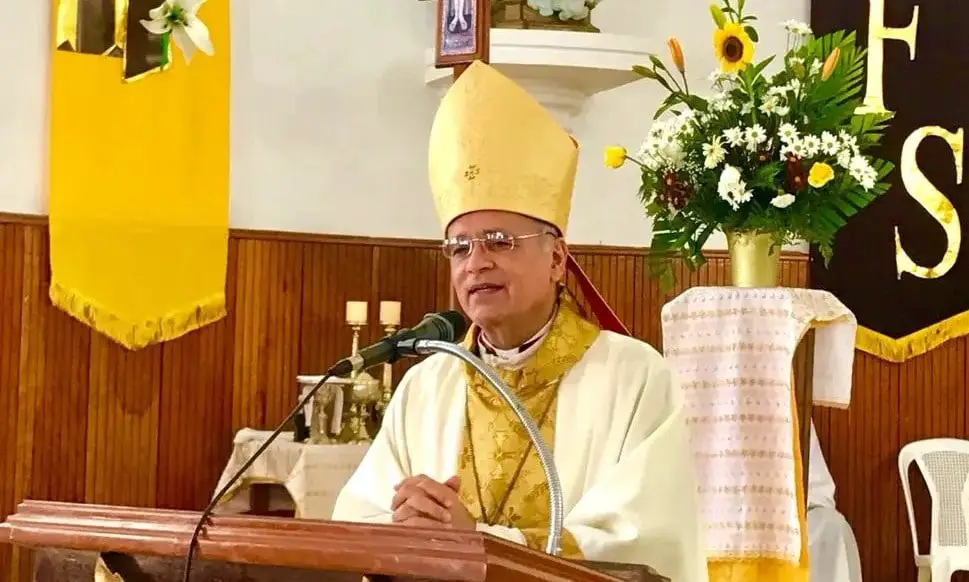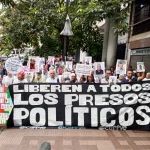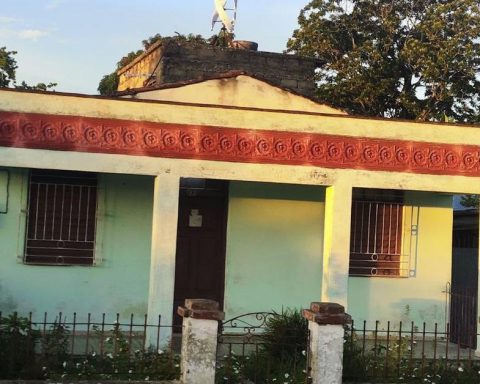The Auxiliary Bishop of Managua, Monsignor Silvio Báez, pointed out this Sunday, February 12, that “they are homicidal actions” and “they are criminals”, those who attempt against the freedom of innocent people, denigrate their dignity with falsehoods, go out of their way to humiliate them, they treat them cruelly and condemn them unfairly. As happened this week in Nicaragua, where the ruling regime exiled 222 released political prisoners and sentenced the bishop of the Diocese of Matagalpa to 26 years in prisonMonsignor Rolando Alvarez.
“These are criminals who put just people in jail and who banish the citizens of their own country,” said the Carmelite bishop, exiled since 2019 due to death threats from fanatics of the government party in Nicaragua. “These abominable acts are not just the whims of crazy people, legal irregularities or failure to comply with international standards. No. Offending with rage, slandering for revenge, unjustly imprisoning, viciously torturing and condemning to exile are real crimes and those who act in this way are criminals, who must be brought to justice sooner or later, ”he continued.
The bishop’s pronouncement occurs hours after Pope Francis regretted the sentence imposed on the bishop of the Diocese of Matagalpa and the banishment imposed on the 222 Nicaraguan political prisoners who were sent to the United States. Therefore, Báez encouraged Nicaraguans not to be carried away by “aggressive instinct and revenge.” On the contrary, “let us boldly denounce the crimes of the tyrants, let us not remain silent, because there are silences that kill. Let’s become factors of unity, promote dialogue and persevere in the fight for justice”, he emphasized.
“They have crossed the line of rationality”
In the opinion of Bishop Báez, Nicaraguans are experiencing a historic moment in which “violent and criminal tyrants andthey have crossed the line of the rational and the human“. But he warns that what happened this week shows “his weakness and his fear”, since “every victory obtained violently is equivalent to a defeat”, said the bishop, paraphrasing the Hindu independentist, Mahatma Gandhi.
“By harming people, they harm themselves; condemned innocents, they condemn themselves; By stealing liberties from the people, they become the most unfortunate slaves, ”he stressed.
Báez also emphasized that people are killed with offensive words that hurt, humiliate and poison coexistence. “We may not kill with a weapon, but we do not comply with God’s law if we then harm others, despising them, offending them, hurting with words, slandering, not respecting their dignity or violating their freedom,” he said.
Along the same lines, the bishop recalled the words of Pope Francis during the Angelus prayer on February 16, 2014: “When it is said of a person that he has a snake’s tongue, what does it mean? That his words kill. Therefore, not only must one not attempt the life of one’s neighbor, but one must also not pour out the poison of anger on him and hit him with slander.” In such a way that “those who have snake tongues are murderers,” he emphasized.
On the other hand, “there are silences that kill,” warned Báez. “The silence of complicity is a way of killing. In society, not denouncing injustice and keeping silent is a way of killing the hope of the peoples”, he concluded.
Cardinal Brenes calls for reconciliation
Meanwhile, Cardinal Leopoldo Brenes, this Sunday asked for forgiveness and reconciliation before the laws that are distorted, a call that occurs two days after the Government of Daniel Ortega and Rosario Murillo reformed the Constitution to strip the nationality of sentenced opponents for crimes considered “treason against the homeland”.
“If the laws have been distorted, if today we have situations that are totally different from God’s thought, the Lord calls us to that, and how beautiful, isn’t it?: Forgiveness, be reconciled with your brother,” said the cardinal, during the mass Sunday celebrated in the Cathedral of Managua.
Brenes appealed to the gospel of the day (Matthew: 5: 17-37), to question the background of the laws in a society from the Christian point of view.
“A very beautiful phrase that the Lord told us at the beginning is: I have not come to annul the law, but to give it its fulfillment, but where is the fulfillment of the law that the Lord proposes to us, if not an attitude of a total change?”, said the religious.
According to the Mechanism for the Recognition of Political Prisoners of Nicaragua, whose data is endorsed by the Inter-American Commission on Human Rights (IACHR), after the release of 222 political prisoners, there are still 35, including the bishop of the Diocese of Matagalpa and administrator Apostolic Church of the Diocese of Estelí.
Cardinal Brenes, however, maintained his silence on the case of Álvarez who, after refusing to be expelled from his country on Thursday, was sentenced to 26 years in prison, stripped of his citizenship and transferred from his house arrest to the La Modelo, the largest penitentiary center in Nicaragua.
Honduran cardinal regrets conviction
Who did refer to the sentence imposed on Monsignor Álvarez It was the Honduran cardinal, Óscar Andrés Rodríguez, who lamented the events and asked Hondurans to pray for the “persecuted sister Church” so that God gives them strength.
“Now in the neighboring country, everyone who thinks differently from some dictators who want to oppress freedom, truth and justice is deprived of their nationality,” Rodríguez said in a Sunday homily.
“How sad those judges who are iniquitous, how a brother bishop, because he dared to tell the truth, has been sentenced to 26 years in prison, the same thing that happened in the first centuries of Christianity when people were persecuted for their faith,” Rodríguez said.
“Justice cannot be defeated with injustice and look at the lessons of history, there are no dictators who have ended well”, emphasized the religious.
With information from Efe.


















